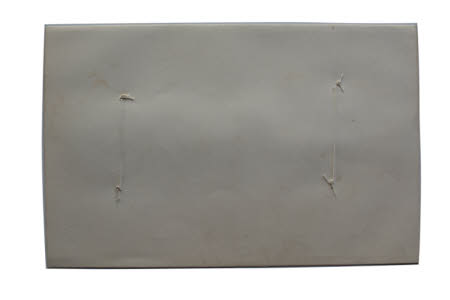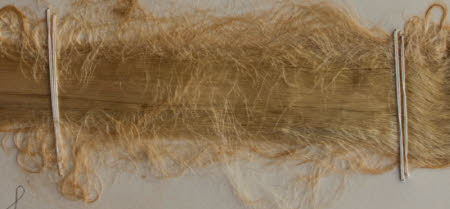Thread
Category
Textiles
Date
Unknown
Materials
Cotton thread
Order this imageCollection
Mr Straw's House, Nottinghamshire
NT 3131353.2.2
Summary
The two pieces of white cotton that hold some raw silk threads onto a piece of plain white paper. On the outer of the paper hand written in large letters 'Silk'. On the back knotted pieces of cotton holding the silk inside in place. Inside the raw silk threads in a natural cream colour, the oils have stained the top of the paper, held with white cotton threads. under the silk hand written in pencil 'Silk from Silkworms, W. Straw Worksop 1911'. The paper is kept in the book 'The Swiss family Robinson . an account of the adventures of a Swiss pastor and his family on an uninhabited island translated from the best original editions by Henry Frith. With about two hundred illustrations.' by Johann David Wyss (1743-1818) (record 3131353). Johann David Wyss (May 28, 1743 in Bern – January 11, 1818 in Bern) was a Swiss author, best remembered for his book The Swiss Family Robinson (Der schweizerische Robinson) (1812). It is said that he was inspired by Daniel Defoe's Robinson Crusoe, but wanted to write a story from which his own children would learn, as the father in the story taught important lessons to his children. The Swiss Family Robinson was first published in 1812 and translated into English two years later. It has since become one of the most popular books of all time. The book was edited by his son, Johann Rudolf Wyss, a scholar who wrote the Swiss national anthem. Another son, Johann Emmanuel Wyss, illustrated the book. Unlike his son, Johann David Wyss lived up to the age of 74, dying in 1818. Wyss has been described as an author whose style was "firmly Christian and moral in tone".
Provenance
Straw collection bequeathed to the National Trust on the death in 1990 of William Straw.

